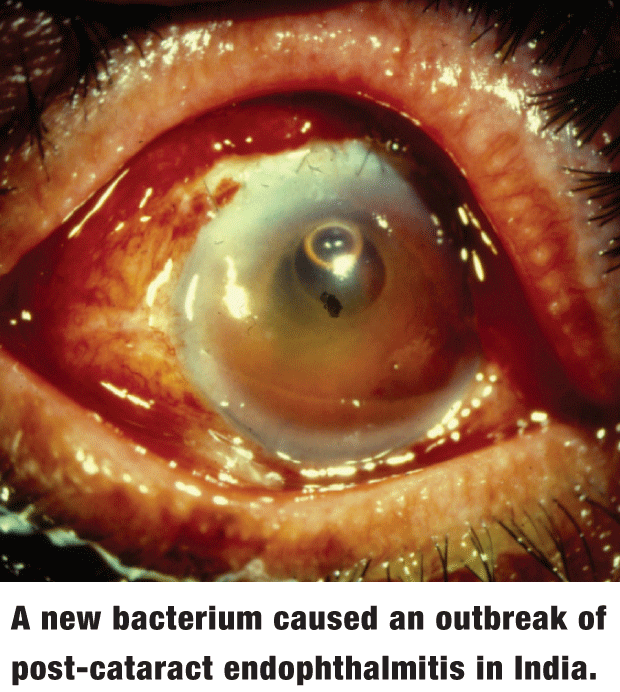A recent outbreak in
Nineteen of 63 post-cataract surgery patients presented with clinical evidence of acute endophthalmitis within one to two days following the procedure at a high-volume clinic, said the researchers. Vitreous samples from three of the affected individuals revealed the presence of gram-negative bacteria, identified as Enterobacter amnigenus. This bacterium is impervious to penicillin, tetracycline and ofloxacin, the authors found.
 Following treatment with oral ciprofloxacin and intravitreal injections of vancomycin and ceftazidime, five of the 19 patients regained 20/200 vision or better. The globe was preserved in 17 patients.
Following treatment with oral ciprofloxacin and intravitreal injections of vancomycin and ceftazidime, five of the 19 patients regained 20/200 vision or better. The globe was preserved in 17 patients.
Endophthalmitis is certainly considered one of the most-feared complications of cataract surgery. Significant damage can happen in a very short period of time, says optometrist Michael Veliky, center director of Omni Eye Services in Rochelle Park, N.J. In this article, the new organism was an environmental one, strongly suggesting that there was not absolute sterility during the procedures.
This report from
A new, [treatment-]resistant organism in the operating room is a recipe for disaster, even in this day and age, he says. While an epidemic of this type of endophthalmitis from a similar organism would be very unlikely in our country, we should remain vigilant.
Korah S, Braganza A, Jacob P, Balaji V. An epidemic of post cataract surgery endophthalmitis by a new organism. Indian J Ophthalmol 2007 Nov-Dec;55(6):464-6.

